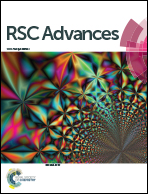LL202 inhibits lipopolysaccharide-induced angiogenesis in vivo and in vitro
Abstract
Excessive or inappropriate angiogenesis occurs in the pathogenesis process of many diseases, such as cancer, wound healing and eye disease, and angiogenesis stimulated by inflammatory factors particularly contributes to the development of inflammation and cancer. In this study, we investigated the inhibitory effect of LL202, a newly synthesized flavonoid, on LPS-induced angiogenesis and further probed the potential molecular mechanisms by detecting MAPK and NF-κB pathways. We found that LL202 inhibited LPS-induced migration, tube formation of human umbilical vein endothelial cells (HUVECs), and microvessel sprouting from rat aortic ring in vivo. The result of the Matrigel plug assay and chicken chorioallantoic membrane (CAM) model also revealed that LL202 could inhibit LPS-induced angiogenesis in vivo. Western blot analysis indicated that LL202 could inhibit the expression of LPS acceptor toll-like receptor 4 (TLR4) and its downstream protein kinases, including the phosphorylation of JNK, p38, ERK, IKK and IκBα. Moreover, LL202 inhibited NF-κB nuclear translocation and its DNA-binding activity. Accordingly, the expression of vascular endothelial growth factor (VEGF), which is a crucial mediator in angiogenesis, was down-regulated at the level of gene transcription. Taken together, LL202 could suppress LPS-induced angiogenesis through the intervention of LPS/TLR4 signaling.


 Please wait while we load your content...
Please wait while we load your content...